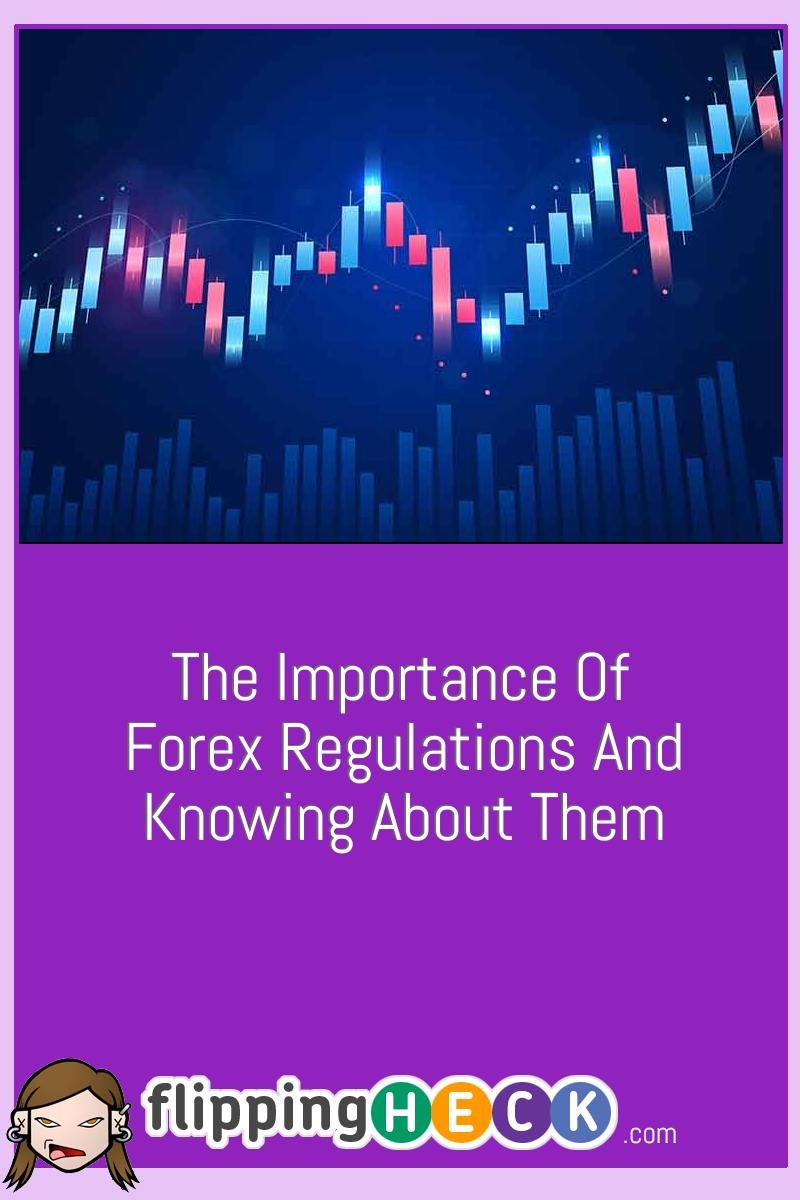The Importance Of Forex Regulations And Knowing About Them
Forex regulations play a vital role in trading since their goal is making trading secure. Here are the most important regulators.

Forex is a decentralized market that operates 24/7, therefore being a target of multiple “fishy” businesses, or rather scams. Of course, scams are everywhere, and Forex can’t be an exception. That’s why forex regulations exist worldwide, to prevent these events from happening.
Every country or rather continent has a different set of rules, so pay attention to where you are trading to find the regulations that apply to you. Everyone serious about their Forex Trading should know about these and at least read them once in a while.
Main Regulators
ESMA stands for European Securities and Markets Authority, it is an independent authority, and its purpose is to safeguard the EU’s financial system stability. They highlight the investors’ protection and aim to promote a stable financial market with rules and regulations. They also have a rulebook for financial markets in the EU, and they are supervising credit rating companies directly, including securitization and trade repositories. ESMA works closely with EBA (European Banking Authority) and EIOPA (European Insurance and Occupational Pensions Authority).
The FCA is connected to the UK and its money industry. It’s separated from the government, and financial markets finance them. They keep their focus on three things:
- Ensuring strong protection for traders
- Enhancing the integrity of the UK’s markets and also protecting their integrity
- Promoting always so they can help UK consumers
FCA has the full right to investigate companies or any deeds reported as a scam, or if they can’t be found on their website (since you can check if the company is fraudulent on their site).
United States’ Regulators
Financial crimes enforcement or simply FinCEN, is short for the United States’ financial system responsible for regulating forex exchange. Their main goals include preventing and fighting money laundering and enforcing regulated security, thus making it stronger; they protect data and maintain US access. They assist the FIU (Financial Intelligence Unit), and they research the financial market a lot. Any financial information they collect, they will use for monetary authorities.
European Regulators
MiFID is an abbreviation for The Markets in Financial Instruments Directive is a European organization that consists of over 31 countries. They aim to sync everything that’s in correlation with protection, regulation and any competition. What is excellent is that MiFID reached their most significant goal – becoming more transparent when it comes to financial services in pricing, which as a consequence increased consumer protection and brought more significant balance in the world of regulation. They always work on educating clients before any trade, and they will put you into one of the following categories: retail, counterparties or professionals.
Regulators Around The World
NZFMA is the New Zealand Financial Markets Association that operates professionally and acts as the New Zealand Market’s financial body. Efficiency is their slogan, and they are a non-profit organization, whose goal is to make everyone’s trading experience better and safer.
ASIC is the Australian Securities and Investments Commission, that regulates financial service of any type, meaning Forex. Of course, they emphasize security, collecting data about trading companies and managing various rules and protocols to maintain safety with minimal disrupting. Their efficiency makes customers very comfortable and secure.
Switzerland has an independent regulator formed years ago (to be more exact, eleven years ago). The regulator is called Swiss Financial Market Supervisory Authority or simply FINMA. They are in charge of regulating various distributors, while they pay attention to security and any financial exchange, and so on.
In the end, we are mentioning the importance of the Japanese regulator or simply the FSA (Financial Services Agency). As the name implies, FSA puts an accent on controlling private financial institutions and the “regular” ones. Their goal is simple – making sure Japan’s system stays safe during any transaction and preventing scams.
In Conclusion
As you can see, every regulator plays a vital role in making Forex a safer place, where traders will be protected and under less pressure. Forex is still decentralized, but it doesn’t mean it can’t have some authority that will at least try to secure everyone’s privacy.

